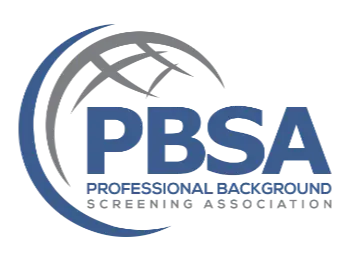by Aimee Cartwright
Friday 25th July 2025 represented a crucial day for the future of internet safety in the UK. The Online Safety Act 2023, which aims to protect internet users from accessing harmful content, brought strict UK age verification requirements and new online safety rules to all UK-based internet users.
While these new measures serve a critical purpose in shielding vulnerable users, they are also creating new challenges for employers. With explicit content now harder to find through traditional, in-house methods, organisations that have not yet adopted professional Social Media Checks should consider doing so.
The Online Safety Act 2023
Intended to protect children and other vulnerable users from viewing harmful online material, the Online Safety Act 2023 affects (amongst others):
- All social media platforms
- Pornography sites
- Large search engines
While this legislation marks a significant victory for digital safety, it also shields potentially damaging content from employers, creating significant challenges in the world of pre-employment screening.
How Will the Online Safety Act Impact Pre-Employment Vetting?
Pre-Online Safety Act: In-House Social Media Checks Were Common
Despite the rise of professional Social Media Check screening, some companies have long chosen to conduct in-house Social Media Checks.
Generally carried out by HR teams or hiring managers, these ad-hoc reviews were often inconsistent, incomplete, and fraught with risks. From unconscious bias and GDPR breaches to overlooking context or misinterpreting content, in-house checks pose a threat to all involved.
Post-Online Safety Act: Higher Demand for Professional Screening
With the implementation of UK online safety rules, much of the adverse or high-risk content that was once easily searchable may now be obscured behind age verification walls or restricted search results.
Professional Social Media Checks offer a crucial layer of protection for employers and employees. Providers use sophisticated technology to analyse an individual’s online footprint whilst maintaining full compliance with UK GDPR, the Data Protection Act 2018 and the Equality Act 2010.
Professional Social Media Checks: The Way Forward
Already a requirement in highly regulated sectors such as Education and Healthcare, professional social media screening is quickly becoming best practice across industries, from Finance and Transport to Legal and Technology.
These checks couldn’t be further from a DIY Google search. Trained Social Media Intelligence Officers conduct in-depth analyses into a candidate’s digital footprint, using tools such as geo-location and AI-assisted filtering to look for adverse patterns of behaviour such as hate speech, endorsement of drugs, and illegal activity.
Despite the significant changes produced by the Online Safety Act, the SP Index customer experience remains unchanged. Our Social Media Intelligence Officers continue to apply their expertise to each and every check, using innovative tools to ensure the final report is wholly representative of the candidate’s digital footprint.
Conclusion
Stricter online safety rules, including requests for ID and age verification, means restricted access to high-risk content. With internal staff struggling to retrieve information, traditional, in-house Social Media Checks are no longer fit for purpose.
Rather than viewing these changes as a setback, forward-thinking organisations should see them as a pivotal opportunity: a chance to upgrade their approach, reduce risk, and lead with integrity.
Outsourcing to PBSA-approved providers like SP Index allows organisations to gain deep insight into a candidate’s online presence without compromising on compliance, privacy, or accuracy.
You can’t vet what you can’t see, so it’s time to rely on those who can.
Contact Us
Get in touch with us to learn more about our expert Social Media Checks:
Telephone: +44 333 210 1688
Email: info@sp-index.com
Join us on LinkedIn here to stay updated with the latest insights, trends, and exclusive content.


